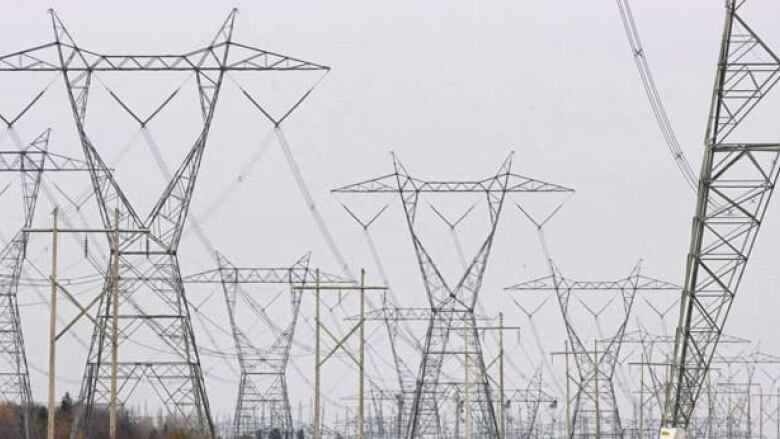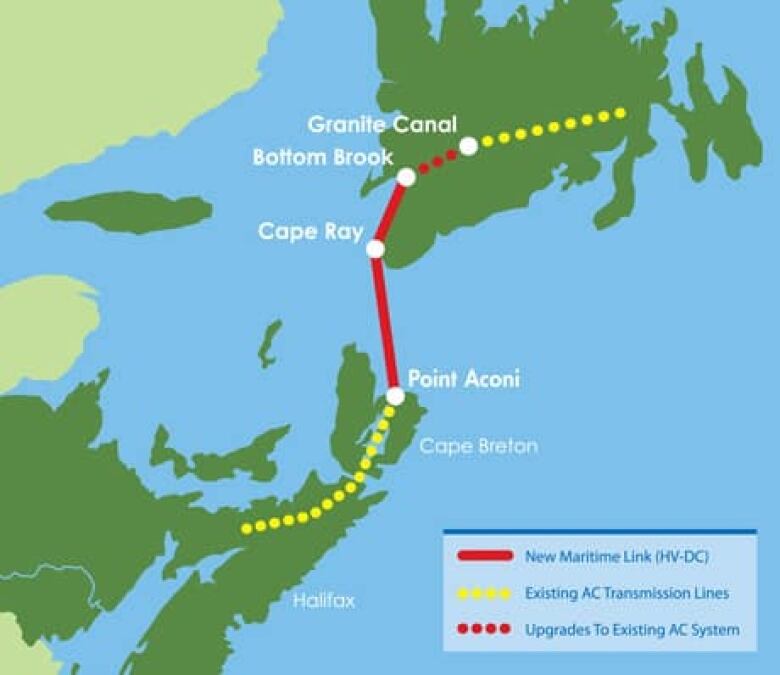Energy costs under scrutiny as Maritime Link debated
Project could affect the price of electricty for a generation

Nova Scotias Utility and Review Board has begun hearing whether it should approve a project to bring hydroelectricity from Labrador to the three Maritime provinces.
Emera Inc., is asking the regulator to approve $1.52 billion in capital spending.
Nova Scotia Powers parent company is a minority partner in the Muskrat Falls project and is responsible for the Maritime Link, which may see as much as 40 per cent of the electricity from the 824-megawatt project moved to Cape Breton by subsea cables.
The project could see ratepayers footing the bill for the next 35 years. Emera said the project would add $1.50 per month to the average household's power bill over the first five years.
Opening statements have been filed by many intervenors.
Some of those intervenors say ratepayers should not pay the $1.5-billion construction cost because Emera Inc. has failed to prove the Maritime Link will provide the lowest cost, long-term source of renewable energy.
"It couldnt possibly be a worse deal and it could easily be a much better deal," said Bill Black, a retired insurance company executive.
He said he isnt opposed to importing renewable hydroelectricity, but doesnt support the financial arrangement.
Neither does the provinces consumer advocate.
"The ratepayers are in effectbeing asked to pay for the building of the project regardless of whether that may or may not bear any relationship to the market value of the energy," John Merrick said.
During the hearing he said the application is "structured to benefit Emera at risk to ratepayers" and urged caution so the project "does not become an albatross borne by all Nova Scotians for years to come."
Lowest cost option, says Emera
Emera remains firm that the link is the lowest cost option. It said the price of larger volumes of cheaper energy will help alleviate the cost ratepayers are paying to build the 180-kilometre subsea cable.
The cheaper surplus energy is not guaranteed, but Emera's spokeswoman Sasha Irving said that shouldn't worry ratepayers.
"The advantage of the Maritime Link is that we will have additional energy flowing that we'll be able to purchase at market based pricing."

Emera says the link's main advantage will be connecting Nova Scotia with cheaper energy from new sources in both Labrador and Quebec.
Under the terms of reference for the Muskrat Falls hydroelectric project, the Utility and Review Board has until July to make its decision about the Maritime Link.
An additional application for ratepayers to cover the cost of the project will not be made until the transmission system is finished, which is expected to be in late 2017.
If the Utility and Review Board decides the Maritime Link is not in the interests of ratepayers, Emera Inc. will have several choices: its shareholders can finance the entire Maritime Link, it can look for partners or it can walk away from the project.
If it chooses the latter option Emera would have to pay the federal government a $60-million penalty.
If regulators heed the projects detractors and reject Maritime Link Emera CEO Chris Huskilson said theres no guarantee it will proceed.
Speaking for the Nova Scotia Energy Department Stephen McGrath echoed that warning suggesting Emera and Nalcor might not proceed if the project is rejected or amended.
The province warned regulators that a federal loan guarantee critical to project financing is also at risk if the application is dismissed.
Progressive Conservative Leader Jamie Baillie sad he would try to renegotiate the Maritime Link if his party forms government this year.
"This may be a good project but its a bad deal," he told the board on Tuesday.
Speaking on behalf of opposition Liberals Andrew Younger urged regulators to "make no decision rather than a bad decision."
Pressure from Ottawa
Newfoundland and Labrador Premier Kathy Dunderdale said she fended off 11th-hour demands from the federal government for a deal to guarantee the loan for the Muskrat Falls project.
Dunderdale said Ottawa is pressuring her to drop provincial fish processing regulations to help secure a trade deal with Europe.
She said the federal Conservative government tried to make it a condition for securing the loan guarantee for the hydro project.
Dunderdale said she would consider a change if the fishery and her province would benefit, but added so far it makes little sense.












_(720p).jpg)


 OFFICIAL HD MUSIC VIDEO.jpg)
.jpg)



























































































